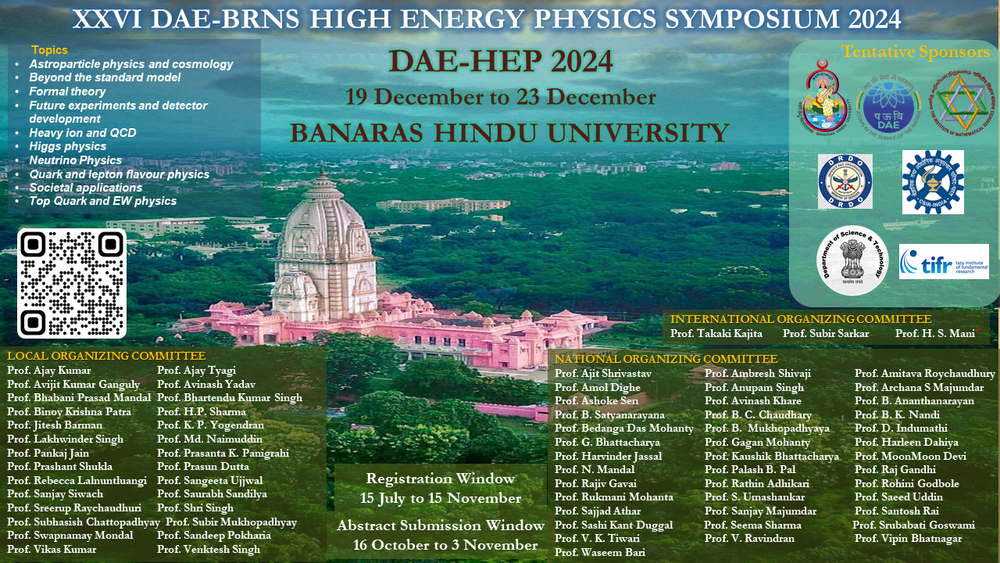Speaker
Description
The conventional semi-classical study of quantum evaporation of a black hole assumes the self-similarity of the black hole throughout its entire lifetime. However, this assumptions ignores the effect of back-reaction of the emission on the black hole itself. Recent studies have suggested that the back-reaction may lead to a new effect called ``memory burden" that slows down the evaporation processes and hence increases the black hole lifetime significantly. In this work, we study the possibility of producing the observed baryon asymmetry and dark matter (DM) from the evaporation of primordial black hole (PBH) taking into account of memory-burden effect. We consider PBHs to dominate the energy budget in the early universe and evaporate away before Big Bang Nucleosynthesis. Although successful cogenesis is not viable with hierarchical right handed neutrino (RHN) due to structure formation constraint on DM, we show the possibility of successful cogenesis with resonant leptogenesis. Moreover, we also explore the possibility of successful cogenesis in a simple baryogenesis model without taking the leptogenesis route. Due to the possibility of generating asymmetry even below the sphaleron decoupling era, new mass window of memory-burdened PBH opens up. Finally, we also discuss the possibility of distinguishing the two scenario from produced stochastic gravitational waves (GWs) due to PBH density fluctuations.
| Field of contribution | Phenomenology |
|---|
